PixInsight Workshop by Vicent Peris
28 – 29 June 2014
Harvard-Smithsonian Center for Astrophysics, Cambridge, Massachusetts, USA
This workshop will give amateur and professional astrophotographers alike a chance to work with Vicent Peris, a member of the PixInsight Development Team, and learn directly from him the techniques and tools he has developed on the PixInsight Platform.

The Harvard-Smithsonian Center for Astrophysics (CfA) is a collaboration of the Smithsonian Astrophysical Observatory (SAO) and the Harvard College Observatory (HCO).
For detailed information on workshop venue and lodging options, please visit the workshop's page at CfA.
About Vicent Peris
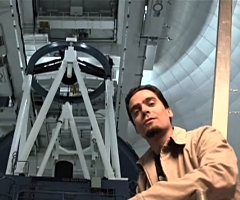
With more than a 15-year career as an astrophotographer, Vicent Peris (Valencia, Spain, 1980) has been working for the last 7 years at the Astronomical Observatory of the University of Valencia (OAUV). He is now leading the world-renowned astrophotographic programs at Calar Alto Observatory (CAHA) with the 3.5 meter and 1.23 meter Zeiss telescopes, the latter in collaboration with the Documentary School of Astrophotography (DSA), applying innovative image processing techniques and software tools. This is the first astrophotography project in the world with access to the observational time of professional telescopes.
You can see some of the published images of the Calar Alto project on the Gallery section of PixInsight's website, as well as some of Vicent's articles about his image processing techniques on the Processing Examples section.
His works have been published and awarded by some of the most reputed publications worldwide, such as APOD, Scientific American, National Geographic, Bad Astronomy Blog, and Sterne und Weltraum.
Vicent is also the official astrophotographer of the ALHAMBRA Survey, a deep cosmological survey conducted by an international scientific collaboration, acquired from Calar Alto Observatory using the 3.5 meter Zeiss telescope. This survey is the first in the world to use a new instrumental technique known as photometric redshifts, in which low-resolution spectra for each object in an image are obtained by using a large, 23 narrow-filter set covering the 3500 – 9500 angstrom light band. You can see some image samples at Vicent's website.
Vicent has also successful experience in forensics and is currently working as an image processing specialist for the Spanish National Police department since two years.
For more information about Vicent's works, please download his portfolio.
Workshop Sponsors
Rates and Registration
With a total duration of 14 hours, the registration price is 180 Euros. Click the button below to register through PayPal.
This workshop is now SOLD OUT. Thank you so much, and see you in Cambridge!.
Venue and Lodging Options
The workshop will take place at the Harvard-Smithsonian Center for Astrophysics, 60 Garden Street, Cambridge, MA 02138 (Open on Google Maps). For detailed information about lodging options please visit the workshop's webpage at the CfA website.
Workshop Methodology
This workshop has been designed with a special focus on the active participation of the attendees. Each registered participant will be provided with a personal account on PixInsight's Endor file server, where he or she will be able to upload raw data that will be worked out during the workshop. In this way the participants will have the opportunity to apply and understand the concepts and techniques described in the context of their particular imaging conditions.
The participants will be able to upload their data until May 28th. Participants should accept the use of their data exclusively in the workshop by the other attendees. Selection of the most appropriate data sets for the workshop is up to the teacher.
Attendees should bring their own laptop computers. A commercial or trial PixInsight license will be necessary. For trial licenses, a local WiFi internet access will be available at the workshop room.
Workshop Program
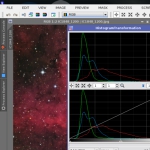
1 — Learning to Navigate the PixInisght Environment
An introduction to the PixInsight Platform and its graphical user interface.
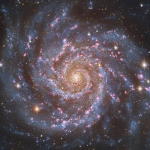
2 — Review of Elementary Techniques of Astronomical Image Processing
Before entering more advanced topics, we'll review some of the most basic image processing techniques for astrophotography. It is strongly recommended watching Vicent's videotutorials about color calibration and LRGB techniques.
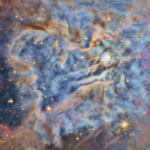
3 — Image Delinearization, Dynamic Range Compression and Masking Techniques
The delinearization process is usually done with a simple histogram transformation. We'll see that PixInsight offers a complete set of tools for this essential processing step. We'll make an in-depth review of the HDRMultiscaleTransform tool and gradient-based dynamic range compression tools. It is strongly recommended to read Vicent's article on dynamic range compression techniques.
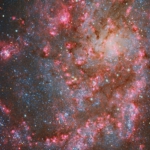
4 — Narrowband Techniques
We'll learn how to process narrowband data, as well as the diverse methodologies to combine them with broadband RGB data.
What we Learned at the Munich 2013 Workshop
These are some examples of what Vicent taught at the Munich 2013 workshop.
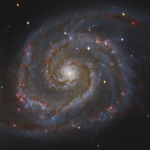
H-alpha Emission Enhancement of Linear Images
This technique allows the H-alpha signal enhancement without affecting the color balance of continuum-emitting objects. Here you have a before/after comparison with images acquired by Leo Bette.
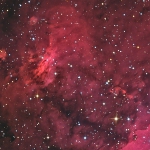
H-alpha Emission Enhancement of Non-Linear Images
We also reviewed techniques to enhance emission-line objects in non-linear images. This is an HaRGB image with IC4628 data by Velimir Popov.
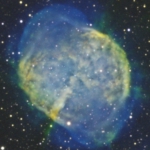
SHO Combination Techniques
An example with M27 data acquired by Max Bacher. Color calibration taking as white reference the integrated light of the whole nebula.
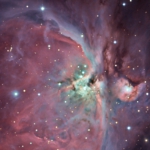
Dynamic range compression
An example of dynamic range management with DSLR data of M42 by José Luis Lamadrid and Vicent Peris.
Workshop Agenda
Total workshop duration: a minimum of 14 hours.
Note: Lunch, dinner and accomodations are not included in the workshop rates.
| Saturday June 28th | |
|---|---|
| 09:00 - 09:30 | Welcoming event |
| 09:30 - 11:30 | Workshop |
| 11:30 - 11:45 | Coffee break |
| 11:45 - 13:30 | Workshop |
| 13:30 - 15:00 | Lunch |
| 15:00 - 16:00 | Tour of Harvard's Great Refractor Telescope |
| 16:00 - 17:00 | Workshop |
| 17:00 - 17:15 | Coffee break |
| 17:15 - 19:00 | Workshop |
| 19:00 - ?? | Dinner |
| Sunday June 29th | |
|---|---|
| 09:00 - 11:00 | Workshop |
| 11:00 - 11:15 | Coffee break |
| 11:15 - 13:00 | Workshop |
| 13:00 - 14:30 | Lunch |
| 14:30 - 16:30 | Workshop |
| 16:30 - 16:45 | Coffee break |
| 16:45 - 18:30 | Workshop |
| 18:30 - 19:00 | Workshop Summary |
Tour of Harvard's Great Refractor Telescope
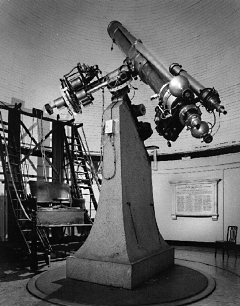
At 3pm on Saturday the 28th, we will take an hour out of the workshop to visit Harvard's famed 15-inch Great Refractor telescope. Installed in Cambridge at "Observatory Hill" in 1847, it was the largest telescope in the U.S. for 20 years.
We will take a few moments to reflect on the monumentous task of building such a device in the middle of the 19th century, and the logistical hurdles that had to be overcome—famililar to many an amateur astronomer!
Time and weather permitting, we will also have an opportunity to take in the wonderful view of the Boston skyline from the observatory roof where the public telescope is also located.
Please note that the tour will involve climbing 4 flights of stairs, and there is no elevator service to the telescope.



